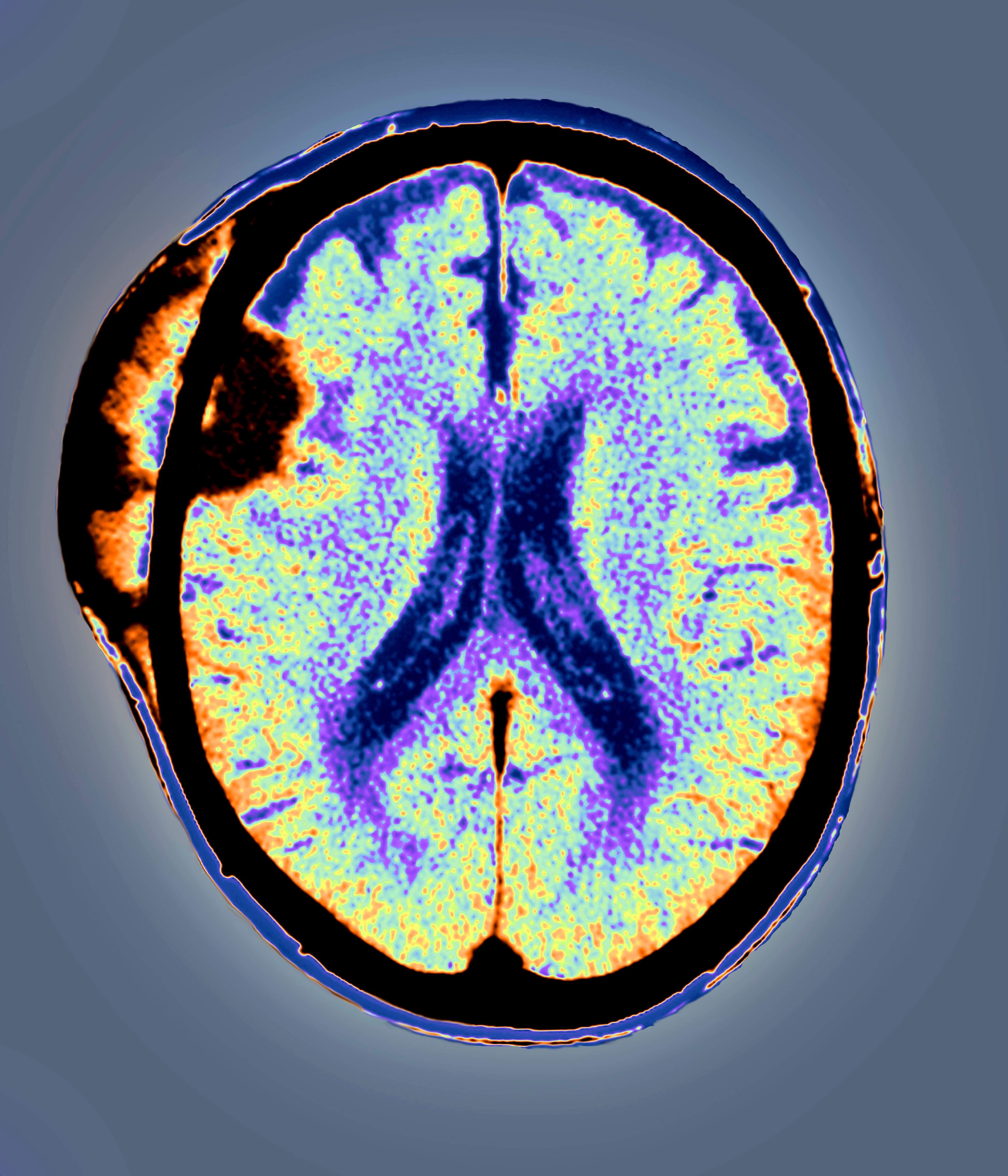The Rare Skin Cancer You May Not Know


A CT scan showing a large Merkel cell tumor near the skull.
An aging and highly sun-exposed population, plus an increasing number of immune problems, may be causing a rise in a rare cancer related to the skin’s touch receptors called Merkel cell carcinoma.
Merkel cell carcinoma (MCC) is a rare but aggressive skin cancer that forms in the top layer of the skin near the nerve endings that sense touch. It’s a quick-growing cancer that can be hard to treat if it spreads to other parts of the body, or metastasizes. In the U.S., there are about 2,500 new cases of MCC diagnosed a year, which comprises a little less than one percent of total skin cancer cases.
Approximately, 5-12% of patients with MCC have metastatic disease, and less than half of these patients survive more than one year. While MCC is rare compared to other skin cancers, the incidence of MCC tripled from 1986 to 2001, making it the most rapidly increasing skin cancer. In addition to a greater sun-exposed, aging population and more immunosuppressed patients, higher incidence of MCC may be due to advances in tools to diagnose the disease.
Appearance
Merkel cells are found in the basal layer of skin, about 0.1 mm from the skin’s surface. Under normal conditions, Merkel cells help transmit touch information to the brain and also produce hormones. Recent evidence suggests that MCC does not begin directly from normal Merkel cells. Rather, it’s more likely that the malignant cells derive from a precursor of a normal Merkel cell (a stem cell in the epidermis).
MCC commonly appears as a dome-shaped, flesh-colored to red-violet bump on frequently sun–exposed areas of the skin such as the head, neck, arms, and legs. It’s not usually painful, but sometimes the top of the skin may break open and bleed.
Causes
Like most other skin cancers, extensive sun exposure is a major risk for developing MCC and this cancer is more common in those with fair skin. The sun’s ultraviolet (UV) rays cause DNA damage to the skin’s cells, which can lead to cancer growth. Tanning beds are also another source of harmful UV rays.
Age is a factor as well. Some 75 percent of patients are over the age of 65 at diagnosis, with the average age being 74.
People with weakened immune systems are also at higher risk of developing this cancer. The risk of developing MCC is eight times greater in HIV infected individuals, ten times greater in organ transplant patients, and 40 times greater in those with chronic lymphocytic leukemia.
In 2008, scientists at the University of Pittsburgh discovered a virus known as Merkel cell polyomavirus, found in nearly 80 percent of MCC tumors. Most people are exposed to this virus at some point in their lifetimes with no symptoms. Scientists are still figuring out how it’s linked to MCC in some individuals. One theory is that the virus is more likely to proliferate and flourish in those with a suppressed immune system, which in turn can raise the risk of MCC.
Treatment
Currently, there are no approved treatment options for metastatic MCC. Patients are either treated with chemotherapy or recommended to participate in a clinical trial.
